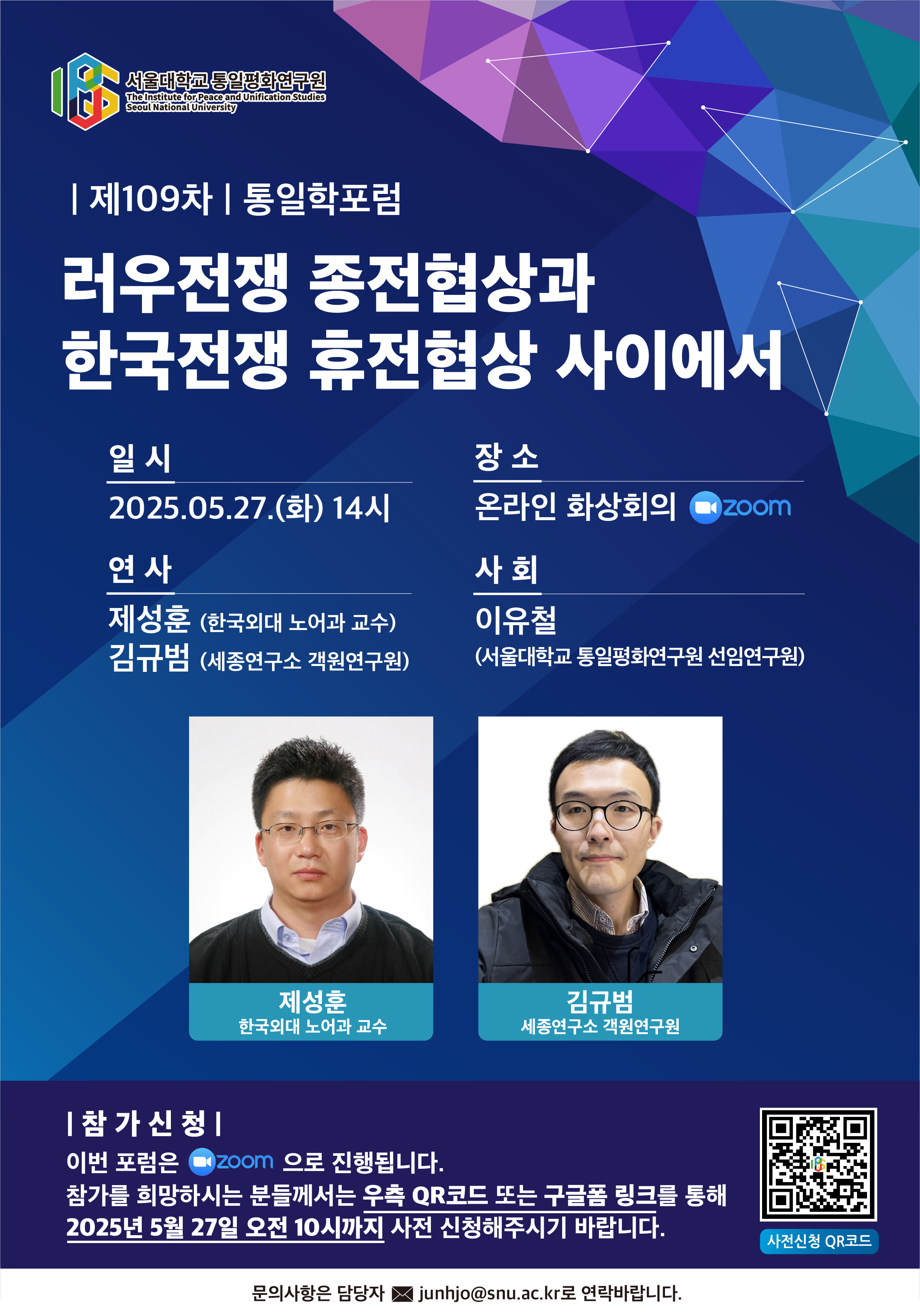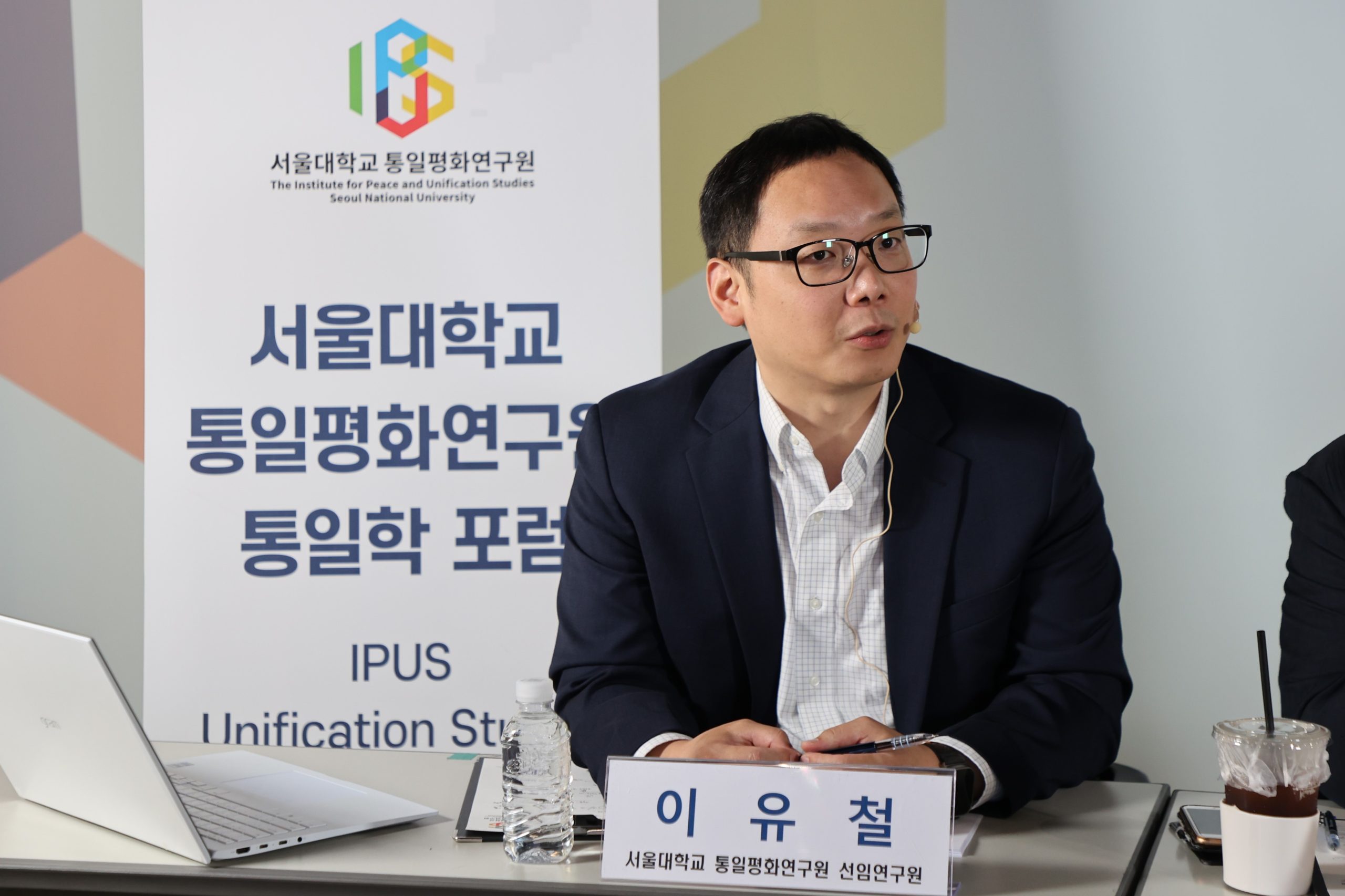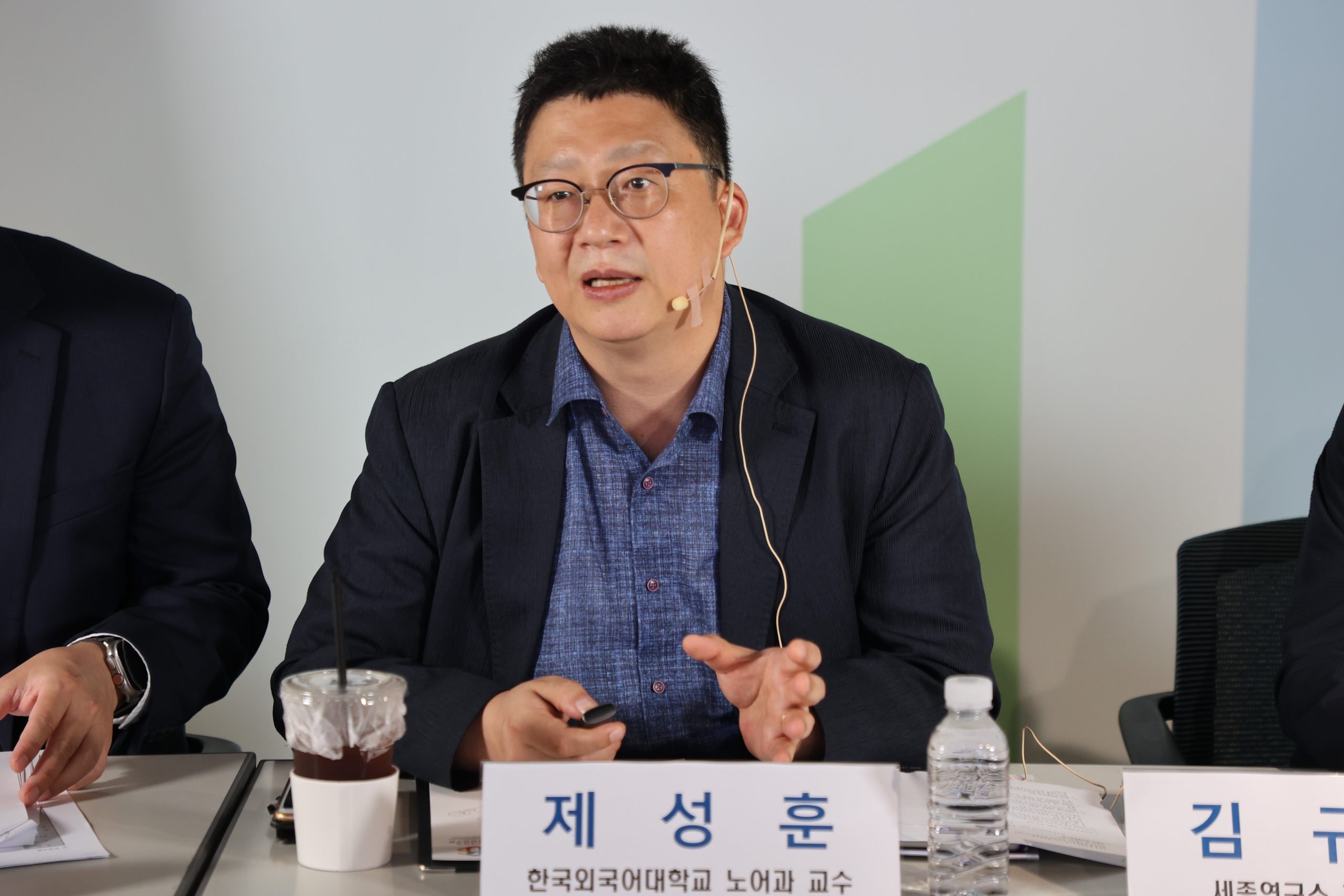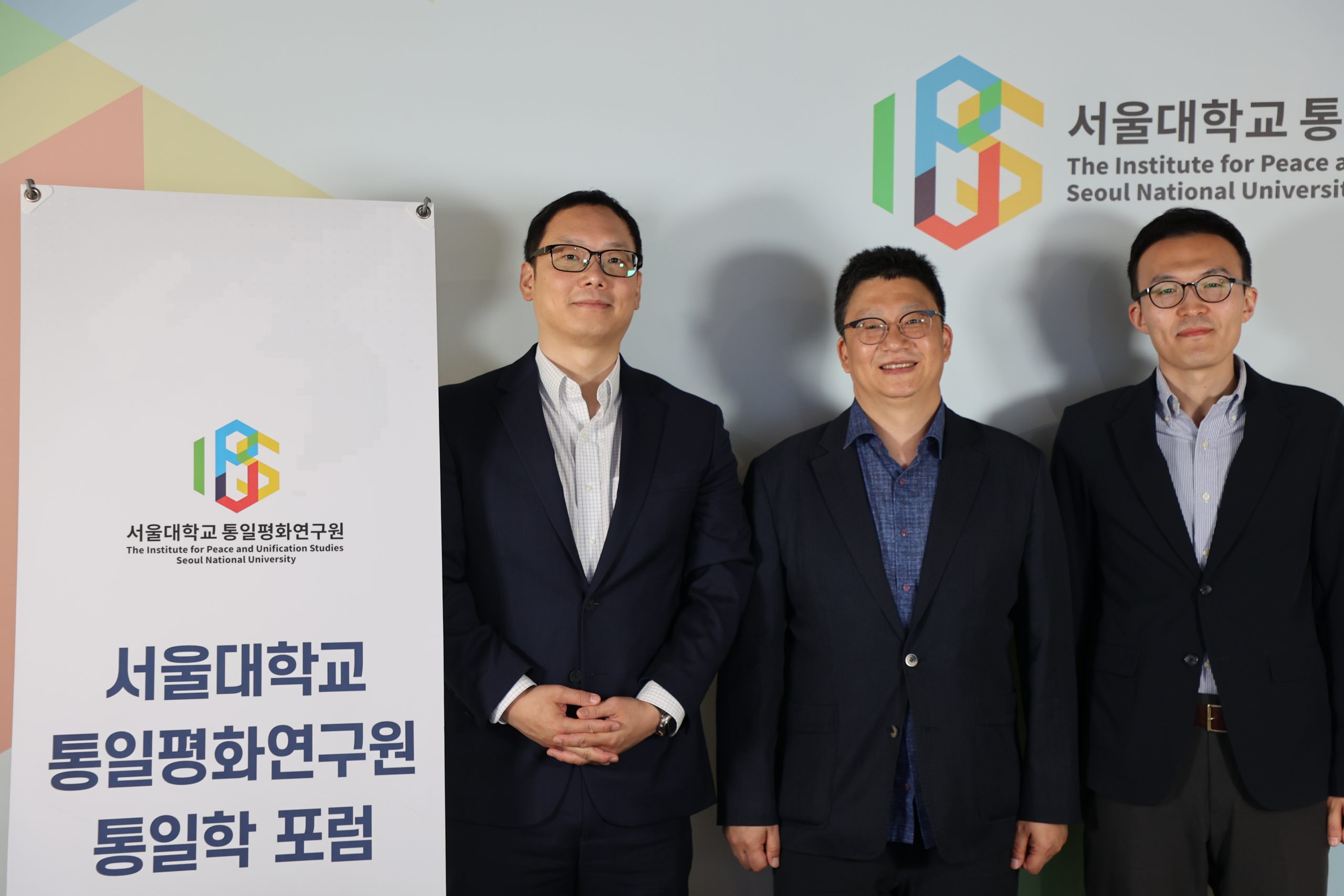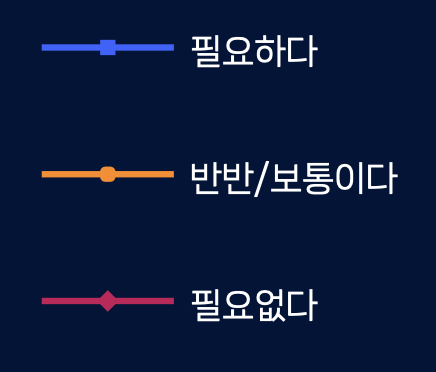[109th Unification Studies Forum] Between the Russia-Ukraine War Termination Negotiations and the Korean War Armistice Negotiations
- Date: Tuesday, May 27, 2025, 14:00-15:40
- Venue: Online Video Conference (ZOOM)
- Speaker: Jeh, Sung-Hoon(Professor, Dept. of Russian Studies at HUFS), Kim, Gyu-Beom(Visiting Research Fellow, Sejong Institute)
- Moderator: Lee, Yoo-Chul (Research Fellow at IPUS)
- Topic: Between the Russia-Ukraine War Termination Negotiations and the Korean War Armistice Negotiations
The Institute for Peace and Unification Studies (IPUS) at Seoul National University hosted the 108th Unification Studies Forum on Tuesday, May 27, 2025. The “Unification Studies Forum” is an expanded and reorganized version of the former “Unification Policy Forum,” which held 75 sessions from 2006 to 2020. The forum featured Professor Jeh Sung-Hoon from the Dept. of Russian Studies at HUFS and Dr. Kim Gyu-Beom, Visiting Research Fellow from Sejong Institute, who delivered a presentation on the topic “Between the Russia-Ukraine War Termination Negotiations and the Korean War Armistice Negotiations.” The forum was moderated by Lee, Yoo-Chul, Research Fellow from the IPUS at Seoul National University, who opened the event with welcoming remarks.
Professor Jeh began his presentation by addressing the prospects for a ceasefire agreement in the Russia-Ukraine war and the obstacles standing in its way. He noted that the Istanbul proposals of March 2022, which included a framework for Ukrainian neutrality and a guarantor model for security assurances, marked an early breakthrough. However, the situation changed drastically in April 2022 following the Bucha massacre and the withdrawal of Russian forces from Kyiv. Professor Jeh explained that Ukraine, having regained momentum, became more confident, and that expanded military and financial support from the West further incentivized Kyiv to pursue military victory over diplomatic compromise. He also pointed out that Russia, facing increasing international isolation, has leaned toward pursuing a revisionist agenda through prolonged warfare. Unlike the Cold War era, nuclear weapons today function differently within the structure of negotiations.
Professor Jeh emphasized that the key point of contention—the demand for binding security guarantees—proved difficult to implement. Ukraine sought automatic military intervention from major powers such as the United States, the United Kingdom, and France in the event of renewed aggression. However, this amounted to a de facto military alliance, a demand incompatible with the neutrality model proposed. As both sides now seem to believe they can gain more favorable outcomes on the battlefield than at the negotiating table, he concluded that a ceasefire agreement remains unlikely in the near term.
Following this, Dr. Kim presented the Korean War armistice negotiations as a historical case study to compare with the present situation. He explained that the Korean War ceasefire talks began in June 1951 and lasted more than two years, culminating in the signing of the armistice in July 1953. He highlighted the Chinese military intervention and the military stalemate as key turning points that drove the talks forward. Complex issues such as the establishment of the military demarcation line, the repatriation of prisoners of war, and the creation of a ceasefire monitoring body were negotiated amid intense and ongoing battles, a pattern he referred to as a “war of attrition accompanied by negotiation.“
Dr. Kim identified a combination of domestic and international political factors that contributed to the armistice. In the United States, political pressure on the Truman administration and President Eisenhower’s desire to end the war converged. On the Soviet side, the death of Stalin in March 1953 and the rise of the Khrushchev leadership led to a shift in policy toward the Korean Peninsula. China, too, aimed to secure a degree of autonomy in the postwar international order. These overlapping factors created conditions conducive to a ceasefire agreement.
In contrast, Dr. Kim argued that the Russia-Ukraine war has not reached a comparable turning point, stating, “This is not a turning point.” Both Russia and Ukraine are currently unwilling to admit defeat or make political concessions, and major powers such as the U.S. and China have not taken on clear roles as mediators. Dr. Kim observed that Russia appears to be aiming for a frozen conflict rather than a negotiated settlement, while Ukraine continues to seek a strategic advantage through battlefield gains, backed by Western support. He concluded that, unlike the Korean War, the conditions for international and domestic compromise are not yet in place. To reach a ceasefire, he emphasized, would require not just willingness on the part of the belligerents, but also a broader diplomatic vision for shaping the postwar order.

